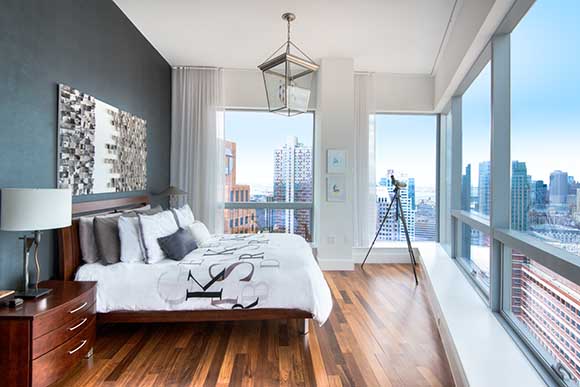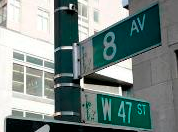
There has been much controversy lately over the room-sharing startup Airbnb which has recently awakened the argument over innovation vs. regulation. Airbnb has been presented itself as one of the most visible players in the “sharing economy” - ahead of services such as Vrbo and Flipkey. These short-term rentals are allegedly depleting the scarce housing market.
In the last decade, New York City lost 40% of its affordable housing units. Making the main concern, the lucrative allure of Airbnb income - could reduce the number of units on the rental market. Airbnb provides users with an online platform where guests can book rooms in hosts’ homes or choose entire houses/apartments. For most, this supplementary income is used to help make ends meet. Others have been using the platform as a profit-making enterprise, exploiting the system.
Henry Ikezi had advertised his 46-floor Hell’s Kitchen rent-stabilized apartment located at 450 West 42nd Street, for $649 per night - triple the amount he was paying for. Due to rent stabilization, Ikezi only paid $6,670 per month while market value of the apartment put it at approximately $9,000. Ikezi claimed to be a full time resident of the Hell’s Kitchen unit, when in actuality he lives in a multi-million dollar home in Jamaica, Queens with his family. Ikezi also claimed to use the apartment for extra income – like many other Airbnb users – but that doesn’t make it any less illegal. The city is coming down hard on anyone who is not using their apartment properly; Ikezi was evicted for double dipping.
Recently, “A Manhattan Housing Court judge has ruled that rent-stabilized tenants can’t double dip – or get a financial break and turn around and make money peddling their pads to tourist on websites such as Airbnb.” This decision clearly reinforces law for the 35,354 Airbnb listings in New York, being the first to evict a rent-stabilized tenant without providing them with a second chance. “This decision should make it easier for landlords to bust rent-stabilized tenants trying to make big bucks off the city’s limited affordable housing.”
The city of New York is not ready to stop at this landmark decision; two City Council members want to pass a new law. This new law would allow tenants to sue their landlords for renting out neighboring apartments as illegal hotels (through Airbnb). Councilmembers Rory Lancman (D-Queens) and Rosie Mendez (D-Manhattan) introduced the bill on Feb. 26, which would put apartment rentals for shorter than 30 days, currently barred by state law, into the category of tenant harassment that carries $5,000 fines. Councilman Rory Lancman stated, “Airbnb and illegal hotels destroy the quality of life of those around them and pose a grave threat to New York’s affordable housing supply.” It would seem New York City is serious about the elimination of platforms such as Airbnb. Eradicating Airbnb does not eliminate the problem. Where there is a need for supplemental income, New Yorkers will press on.





